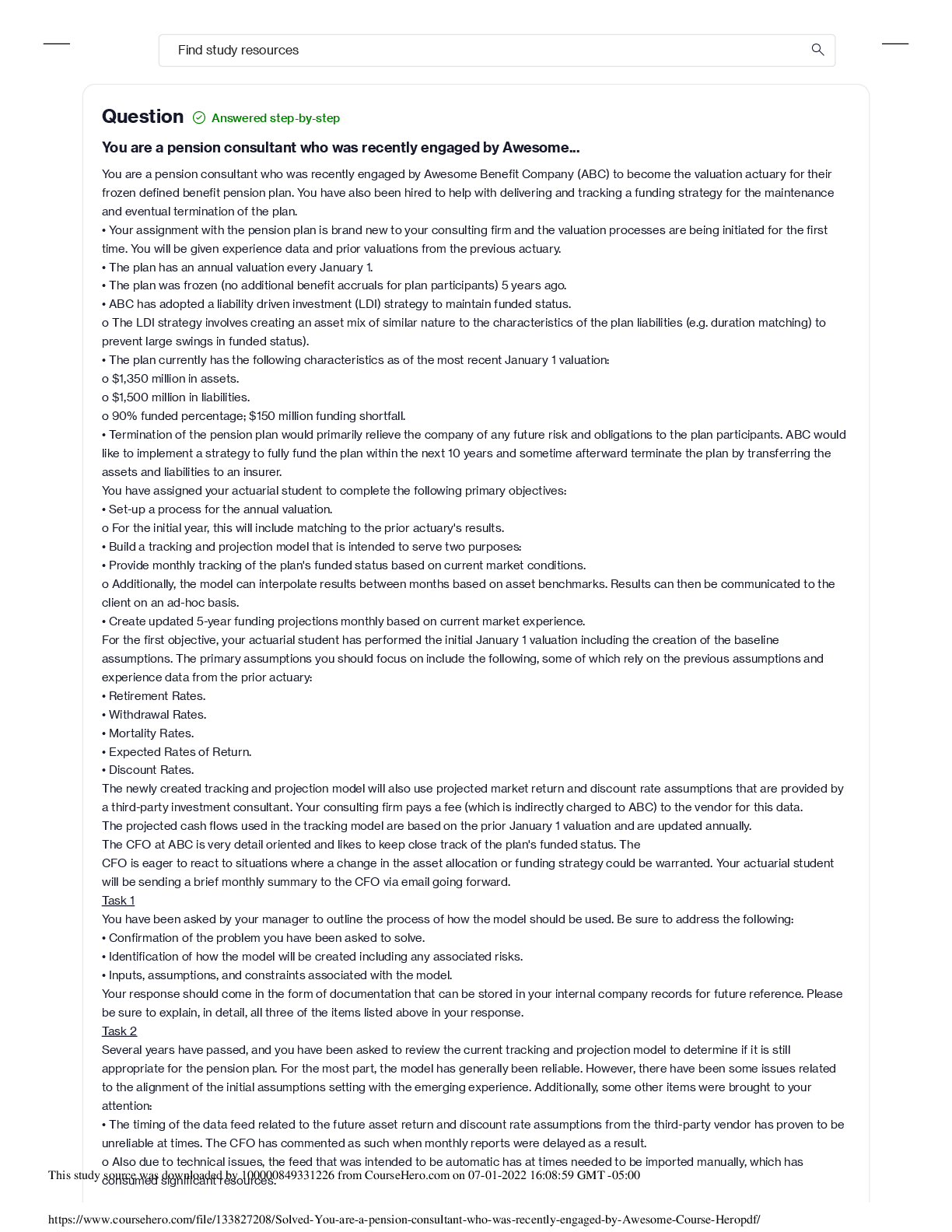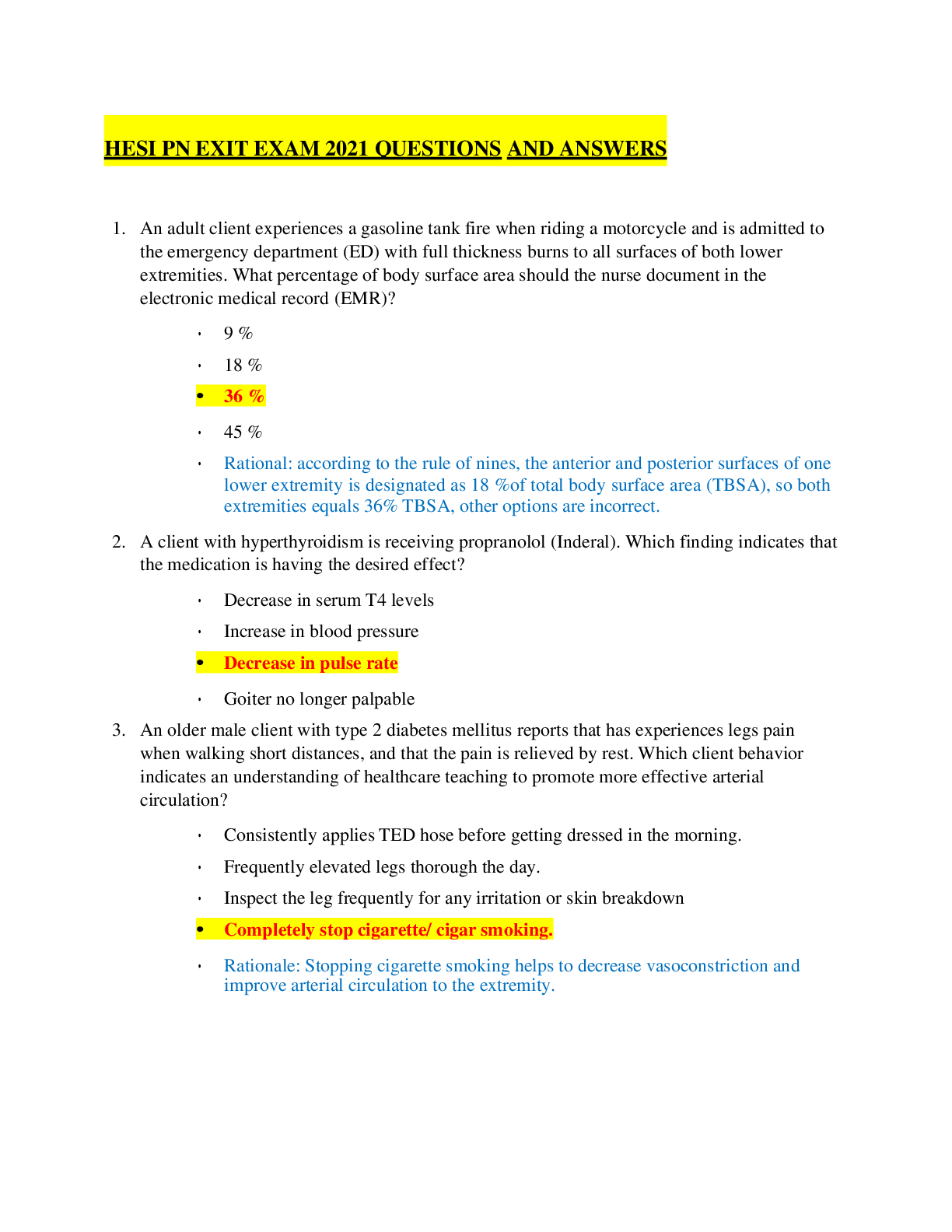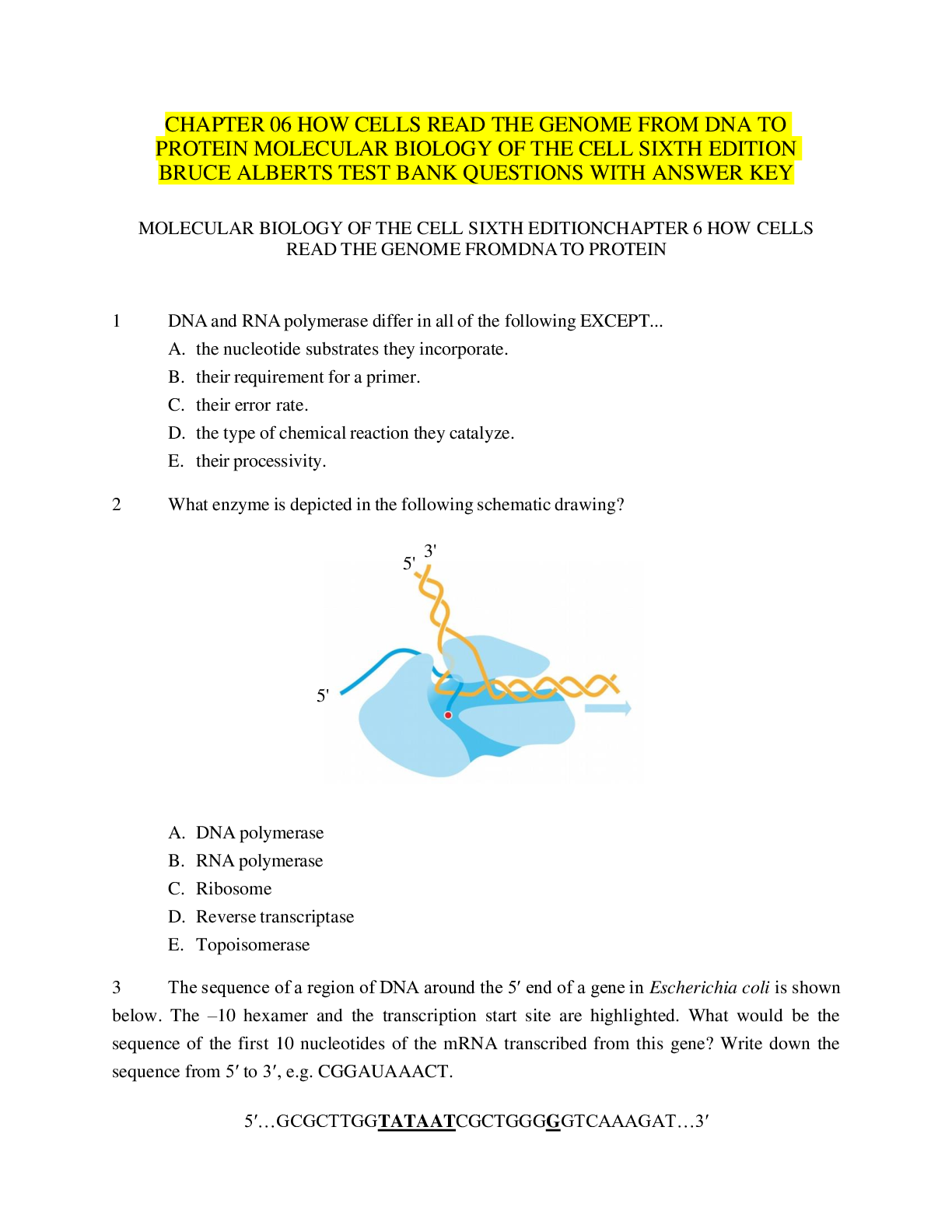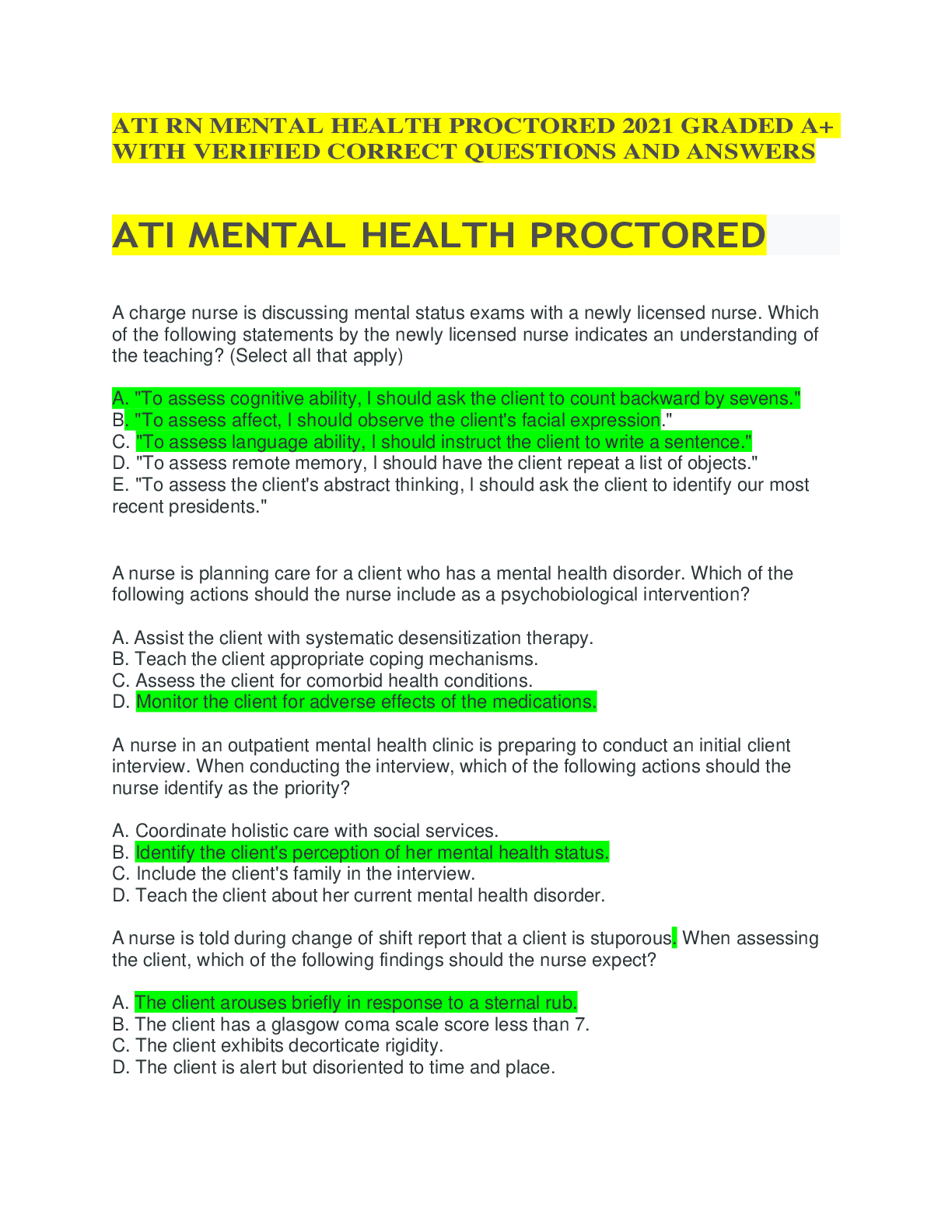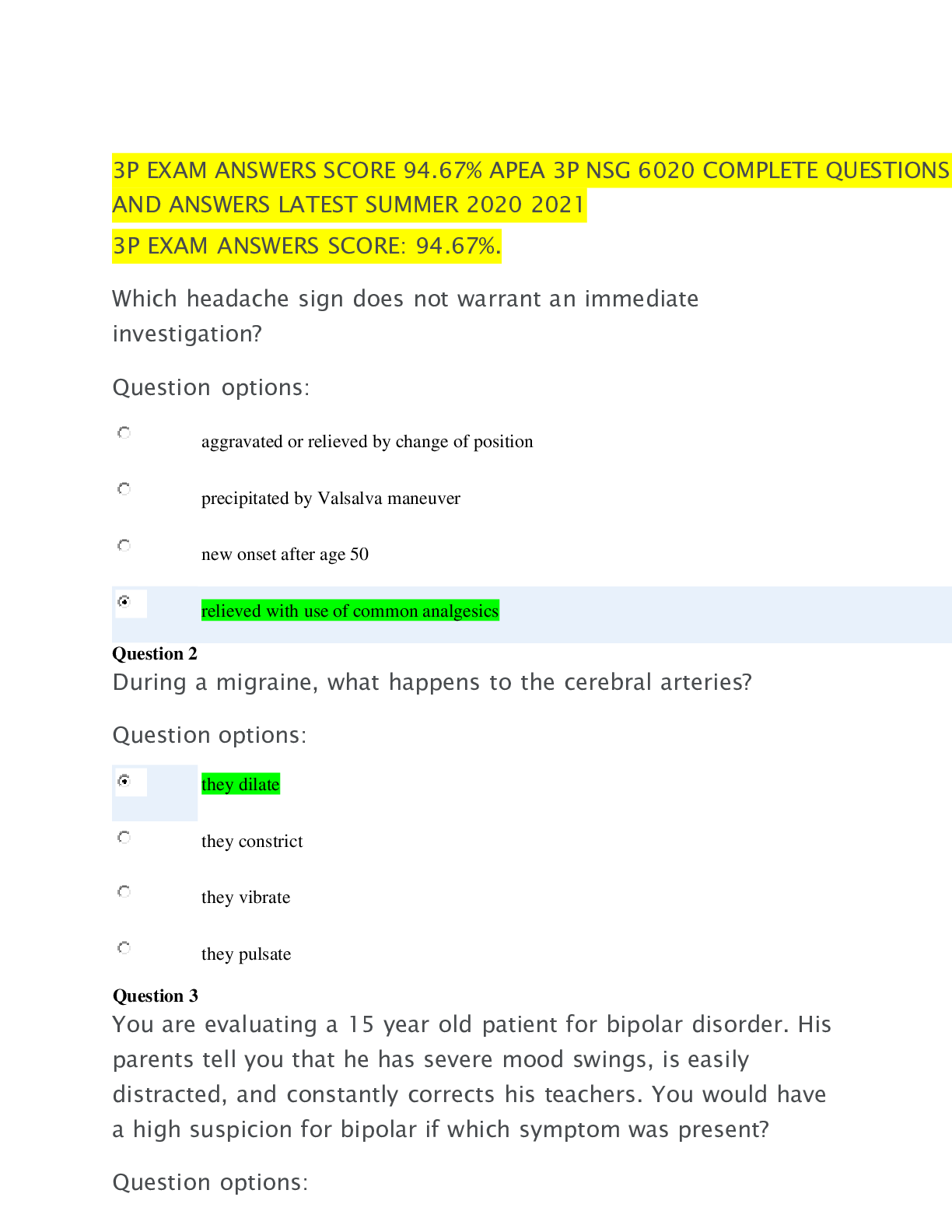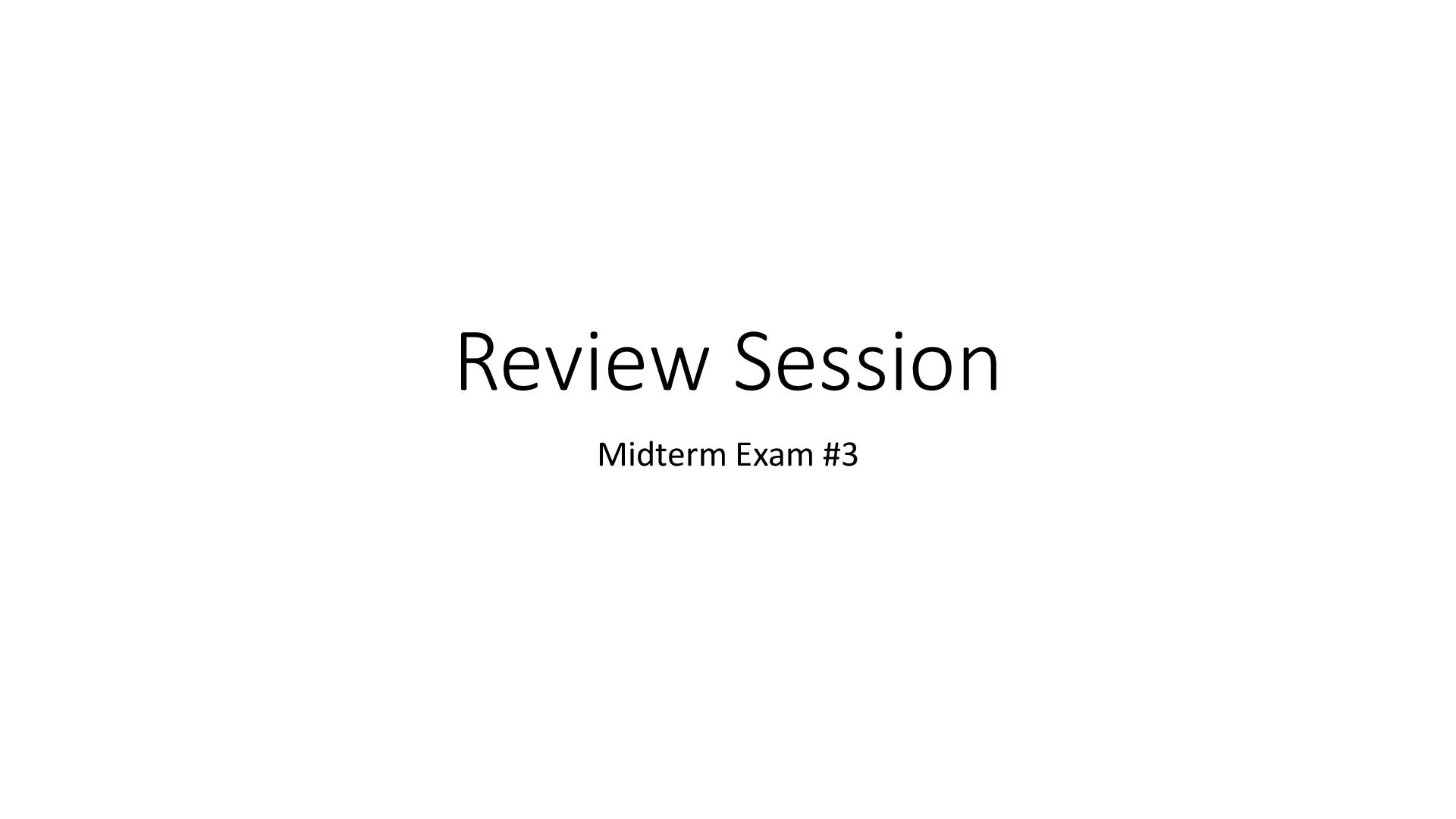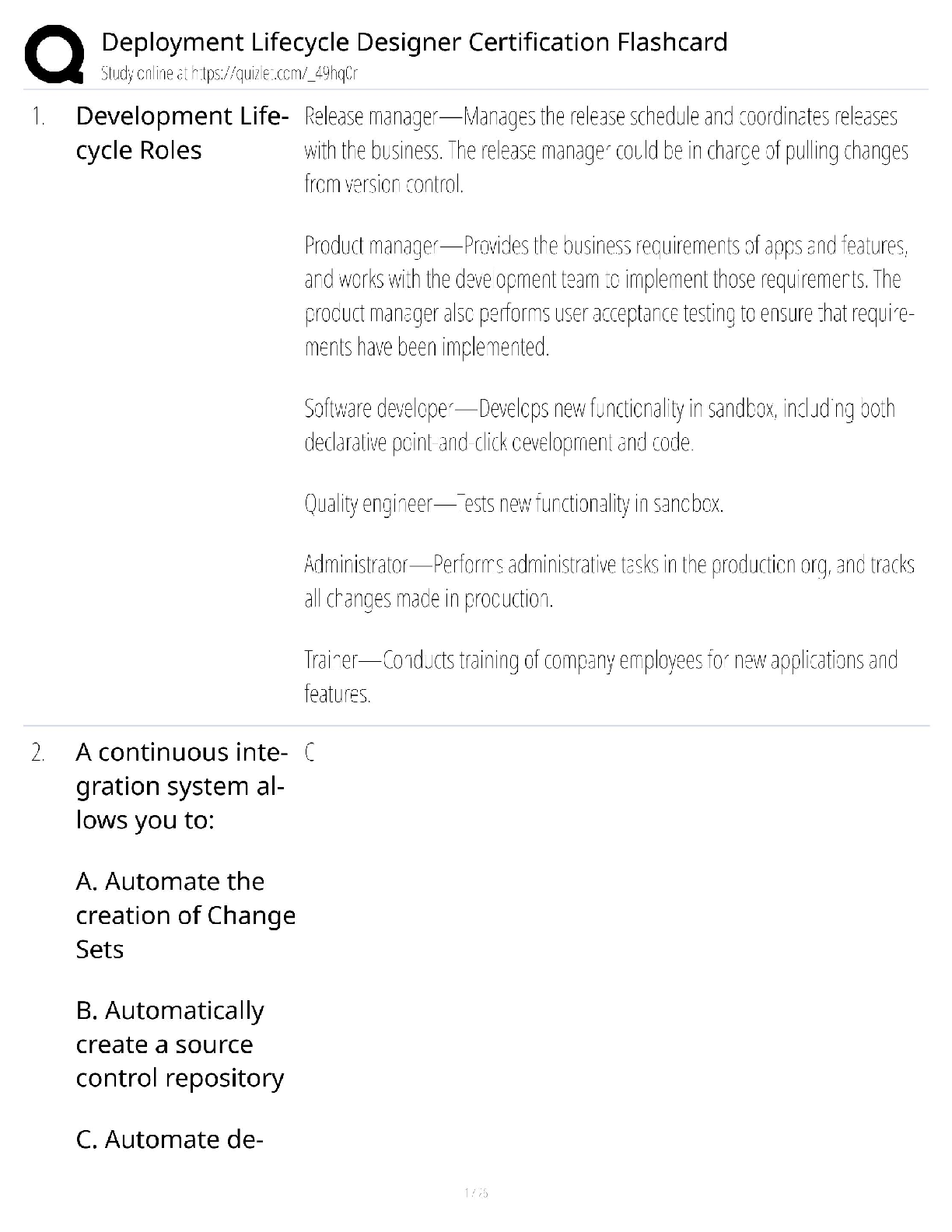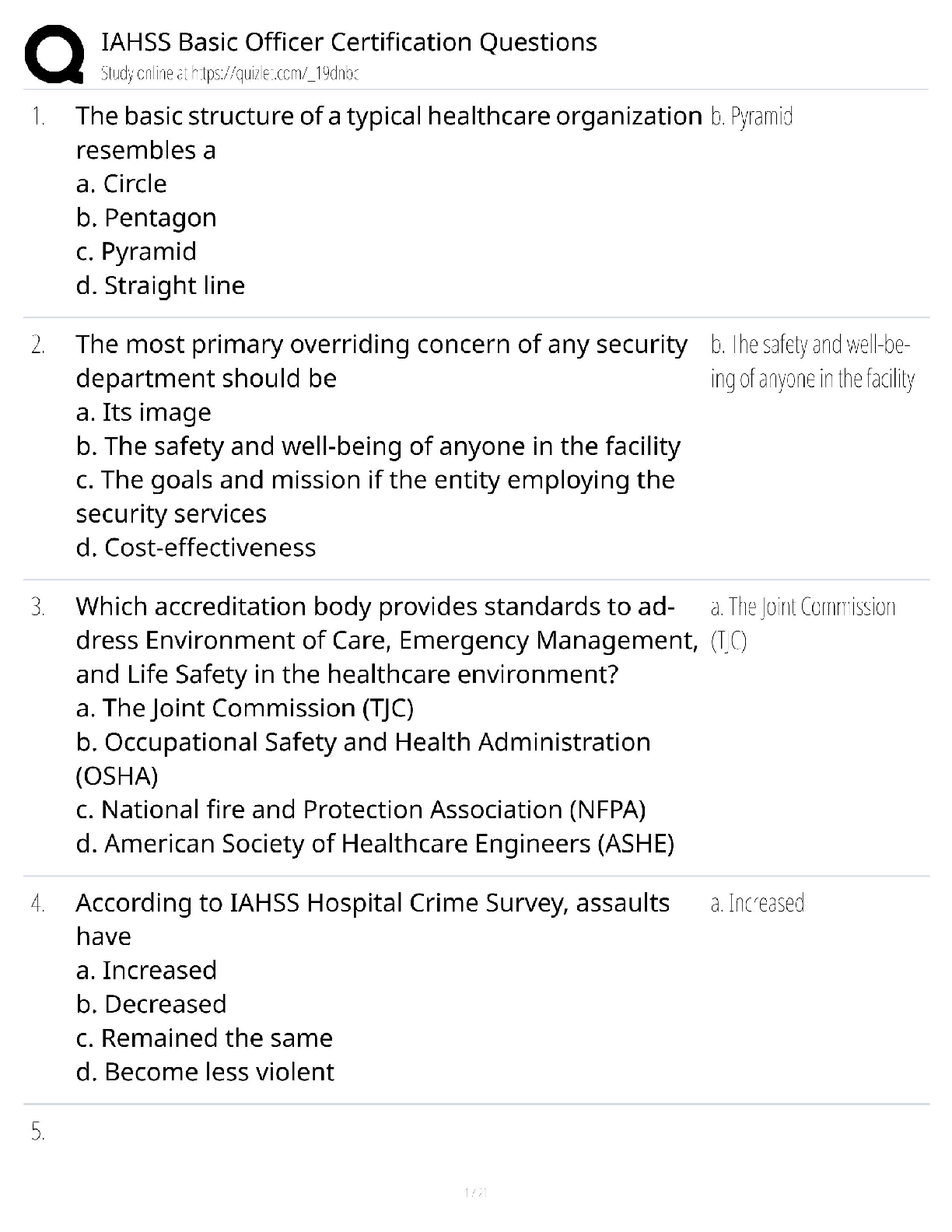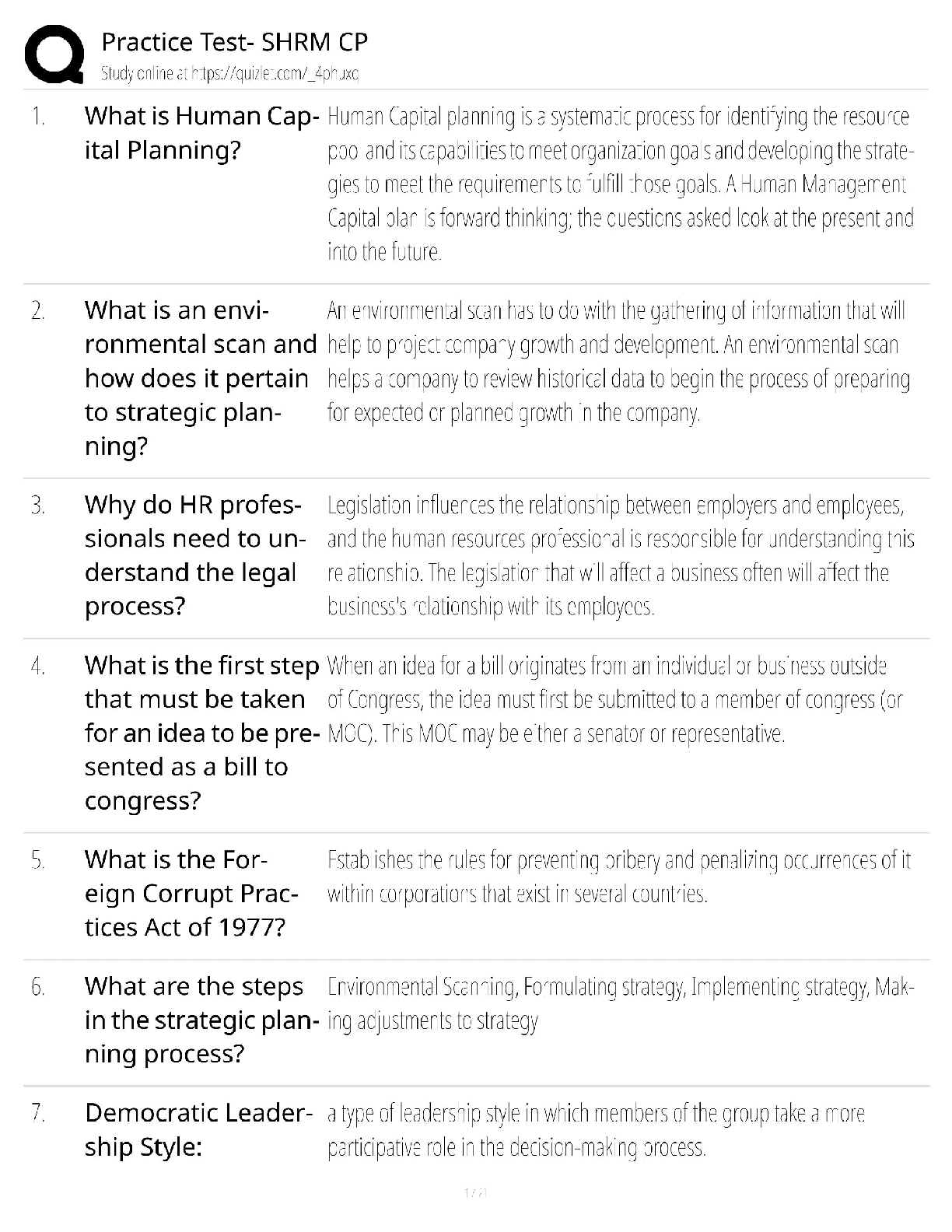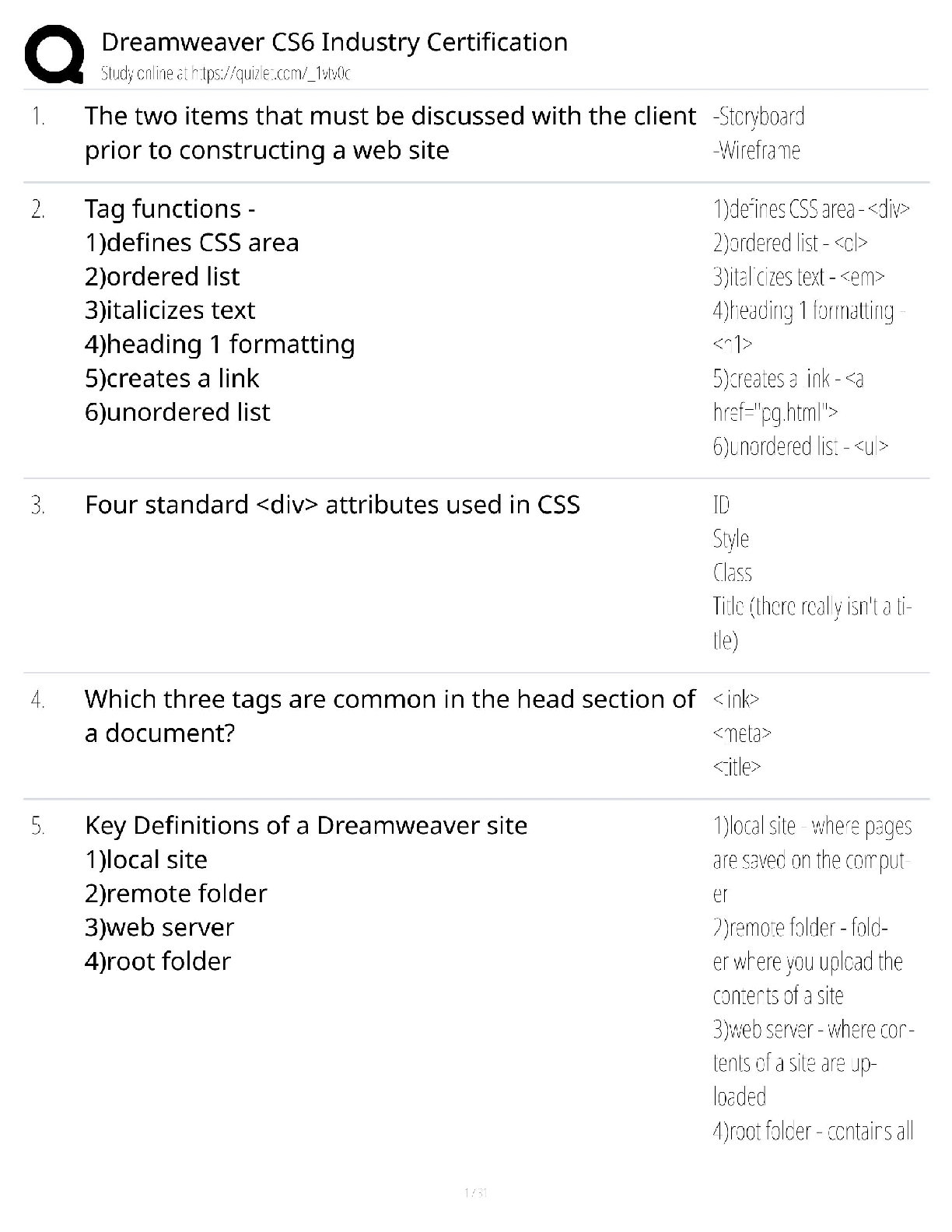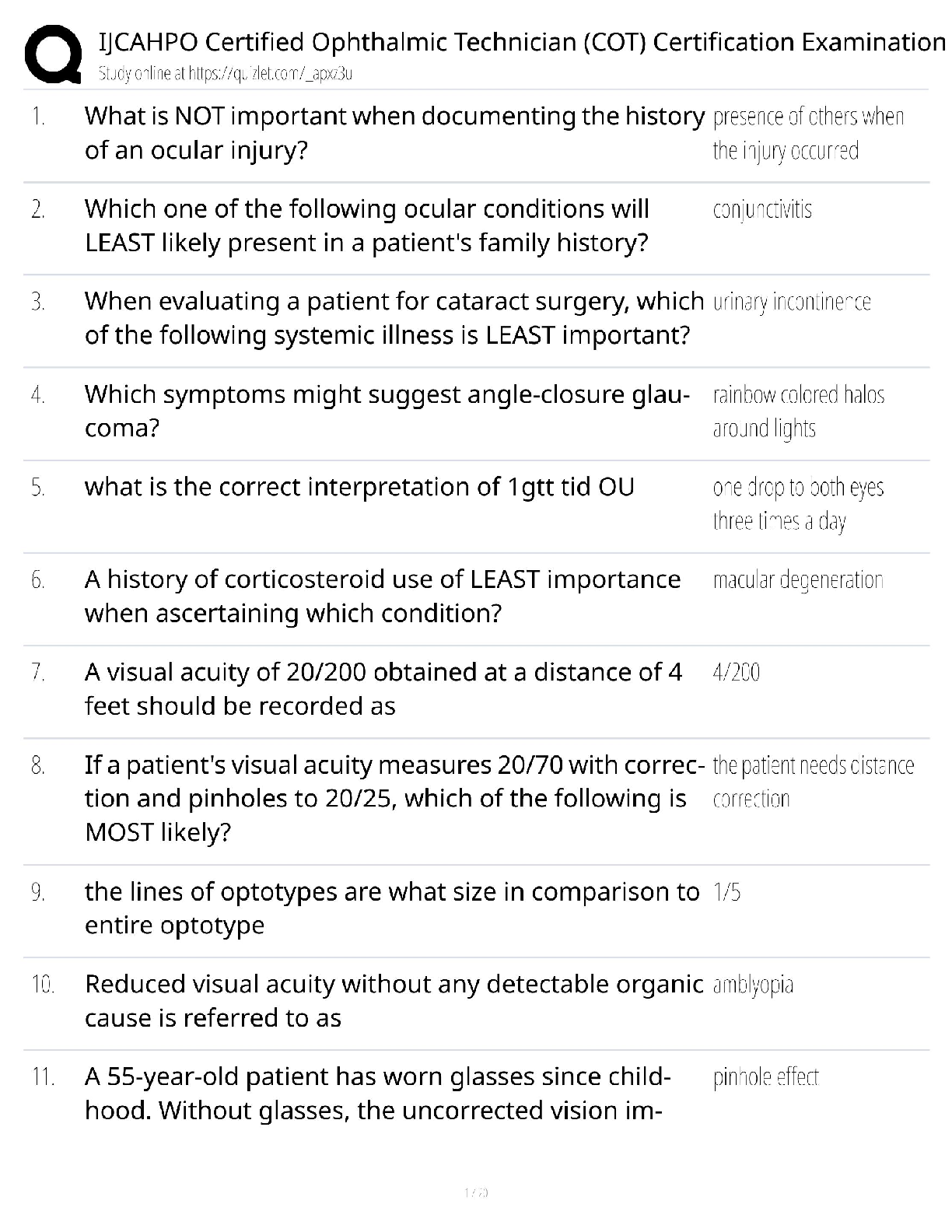Child Learning and Development > QUESTIONS & ANSWERS > Jean Piaget - Stage Theory of Development (All)
Jean Piaget - Stage Theory of Development
Document Content and Description Below
Jean Piaget - Stage Theory of Development how does Jean Piaget's correlate, complement, or contradict the role of play in children? how may Jean Piaget's perspectives influence reading? Answer & E ... xplanation Solved by verified expert Learning through play, appears to be a simple notion, but has profound meaning. It helps children make sense of the world around them through discovery, allowing them to develop cognitively, socially, emotionally and physically. In my view not particularly well. Paget's theory is a reflection of the culture of systematic factory working and linear progression. Paget's theory excludes the social nature of humans and the development that progresses through social interaction with other humans. Children do not develop specific skills at certain ages - children will learn pretty much whatever you teach them. Children are also not egocentric (another feature of Paget's theory) they are inherently social and understand others have different needs and wants to them from a very early age. Jean Piaget's research child subjects provided Piaget toward observations of how a young child cognitively psychologically intellectually develops abstract conceptual mental operational thinking processes which Piaget placed into cognitivepsychological intellectual developing stages of (1) sensorimotor stage, or, sense experiences within their world, birth to 2 years, (2) preoperational stage, ages 2 to 7, when children begin to learn to abstractly think using pictures, objects, symbolic relational words to their abstract conceptual mentally operationally thoughts, when children begin to recognize and realize that they exist autonomously separate from the physical earthly reality, when children begin to learn that there are good and bad consequences to their behaviors due to their egocentric struggle to accept that there are other's perspectives toward thought and behavior, (3) concrete operational stage, 7 to 11 years of age, when children recognize and realize the intellectual positivity to mentally operationally think orderly, reasonably, logically, separating uncertain questionable (the why) information cause and effect of earthly reality events toward possibility of logically, orderly reasoning "the actual" of "the why and how" one earthly reality event may have caused the other earthly reality event to occur; they constantly ask "why," (4) formal operational stage, ages 12 and up, when adolescents begin to learn to rely upon abstract mental operational conceptual thought in order to abstractly cognitive intellectually reason the differences between the uncertain phenomenal earthly reality from their innate conscious awareness of their innate knowledge of the moral, the ethical, the earthly social, the hidden ethereal spiritual, the hypothetical, the theoretical, the principled, the logically reasonable. The theory that brains mature as infants and children develop increased cognitive abilities has had a profound impression in child psychology. We now have more accurate ways to measure neurological development and the speciic areas of the nerous system involved, but a a general theory that children are not young adults, it has changed our attitude about social and cultural concepts of child care and expectations. [Show More]
Last updated: 2 years ago
Preview 1 out of 4 pages

Buy this document to get the full access instantly
Instant Download Access after purchase
Buy NowInstant download
We Accept:

Reviews( 0 )
$7.00
Can't find what you want? Try our AI powered Search
Document information
Connected school, study & course
About the document
Uploaded On
Feb 09, 2023
Number of pages
4
Written in
All
Additional information
This document has been written for:
Uploaded
Feb 09, 2023
Downloads
0
Views
134

